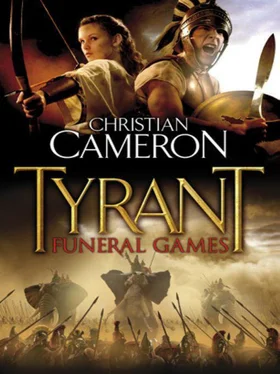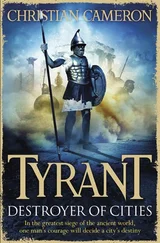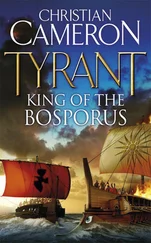Christian Cameron - Funeral Games
Здесь есть возможность читать онлайн «Christian Cameron - Funeral Games» весь текст электронной книги совершенно бесплатно (целиком полную версию без сокращений). В некоторых случаях можно слушать аудио, скачать через торрент в формате fb2 и присутствует краткое содержание. Жанр: Исторические приключения, на английском языке. Описание произведения, (предисловие) а так же отзывы посетителей доступны на портале библиотеки ЛибКат.
- Название:Funeral Games
- Автор:
- Жанр:
- Год:неизвестен
- ISBN:нет данных
- Рейтинг книги:5 / 5. Голосов: 1
-
Избранное:Добавить в избранное
- Отзывы:
-
Ваша оценка:
- 100
- 1
- 2
- 3
- 4
- 5
Funeral Games: краткое содержание, описание и аннотация
Предлагаем к чтению аннотацию, описание, краткое содержание или предисловие (зависит от того, что написал сам автор книги «Funeral Games»). Если вы не нашли необходимую информацию о книге — напишите в комментариях, мы постараемся отыскать её.
Funeral Games — читать онлайн бесплатно полную книгу (весь текст) целиком
Ниже представлен текст книги, разбитый по страницам. Система сохранения места последней прочитанной страницы, позволяет с удобством читать онлайн бесплатно книгу «Funeral Games», без необходимости каждый раз заново искать на чём Вы остановились. Поставьте закладку, и сможете в любой момент перейти на страницу, на которой закончили чтение.
Интервал:
Закладка:
The Mede had a sword like a Sakje akinakes, long and narrow, and he got a hand on the javelin he’d thrown at her while she rose to her feet.
He hesitated when he saw her trousered legs, and she got her sword out from under her arm before he could finish her off. She didn’t hesitate – she put a hand up against the heavy javelin, missed her grab and stepped in anyway, swung the sword with the whole weight of her body behind it. He got his akinakes up to parry but her blow sheered down the blade and cut into his fingers and hand from brutal momentum.
He froze in pain.
She swung hard, cutting so deep into his neck that her sword stuck, and he flopped in the bloody sand, still alive, arms reaching for her. He got a hand on her leg and she kicked, slammed her fist into his face – blood from the neck wound splashing over both of them – got the sword free from his muscle and bone and cut again and again and again and again until the sword flew from her fingers from exhaustion to land a horse-length away in the sand.
She knelt by the body, empty of anything. Later she got up and fetched her weapons, drank some water and walked off down the line to where the other survivors gathered around Idomeneus.
‘Argon’s dead,’ she said.
Carlus rode by her. ‘I can’t find her!’ he roared, and a dozen hippeis rode back the way she had come into the battle haze. The archers watched wearily, uncaring as to what the fuss was. Melitta didn’t care much herself, so she walked boldly across the sand to Diodorus.
‘I’m right here,’ she said.
Diodorus looked down at her and his dust-caked face creased in a smile. ‘You look like your father sometimes,’ he said. He pointed at Andronicus and gave him some visual cue that caused the Gaul to blow a complex trumpet call, and all the Exiles began to rally. Several Exiles waved at her, and Eumenes pointed her out to Crax and Carlus, who shook their heads.
Carlus rode over. ‘You scared me, missy!’
Melitta spurned the hand he offered her to mount. ‘Bodies to loot,’ she said. ‘And I suspect there are horses for everyone, Big Guy. And if you call me missy again in public, I’ll gut you.’
Carlus grinned as if he’d just won a contest, but his voice sounded gruff. ‘You and what army, archer?’ He spat. And worked to hide his grin.
Melitta walked off into the sand, and she made herself pull rings from fingers. There was some good armour and a lot of decent swords – not that she needed either. After the first minutes, she couldn’t bear the sounds the wounded horses made, and the sight of the men – in particular, the sight of men she liked ignoring other men dying in agony at their feet while they stripped their bodies – sickened her. So she pulled a handsome saddle blanket from the corpse of a horse and a rider fallen together, and she took the bridle and bit from henna-beard, who she’d dropped herself, and then she walked all the way to the horse herd, well clear of the carnage, and cut out a pretty mare, tall and dark with four white feet. She put the tack on, dealt with the mare’s unease with the smells and the whole situation, and got herself mounted, kit bundle, bow and all. And she had a few gold darics to wow the boys in camp.
Idomeneus found her waiting with her horse. ‘You won’t leave me for these centaurs, will you?’ he asked. ‘I shouldn’t have put you at the end of the line in your first fight – but you shoot faster than most of the others. Was it bad, kid?’
She wanted to say something witty, the way Satyrus did – always brave, always ready with a quip. Finally, she said, ‘I didn’t throw up.’
Idomeneus nodded. His lips were as pinched as she felt hers must be. ‘You saw Argon go down?’
She shook her head. ‘Medes got him in the charge. We all hit the sand – he didn’t get flat enough.’
Idomeneus nodded again. ‘Help me get him on a horse then,’ the Cretan said. ‘He’s been with me five years – least I can do is put him in the ground.’
They recovered all their dead, and Crax and Eumenes gathered armour and built a trophy and left it sticking out of the sand, a taunt at the whole army of Demetrios, whose tents were just visible ten stades away on the horizon. When they rode off, with plunder and prisoners and two hundred new horses, the trophy glittered behind them under the new sun until they crested the big ridge south of the walls, and then they were home.
25
Demetrios didn’t make a treaty. After two weeks of staring at the impregnable works of Peleusiakos, losing cavalry fights and watching his plans for conquest unravel, Demetrios decamped in the night, leaving his fires burning, and retreated across the Sinai along eight hundred stades of coast road.
The morning after he vanished, Ptolemy’s army was awakened by trumpets. From the door of his tent, Satyrus could see the cavalry in the next camp rolling their blankets and putting their bronze kettles in old linen bags.
‘They’re moving!’ Satyrus shouted at Abraham, who was still in the blankets with Basis, an Aegyptian girl he’d adopted.
Philokles came up, already in armour and carrying his shield and spear. ‘Shield-bearers, get packed. March in one hour! Satyrus, see to it that every man has food in his belly and more in his pack.’
Satyrus saluted, but he caught his tutor’s arm. ‘What is it?’ he asked.
Philokles nodded in satisfaction. ‘One-Eye’s golden child has made a mistake, lad. And now we’re going to chase him.’
‘I don’t understand,’ Satyrus said. ‘You said no battle.’
‘I was wrong,’ Philokles said. ‘If we catch him short of his depot at Gaza, he’ll have to fight. I never thought Ptolemy had the balls.’ The Spartan made a face. ‘No – that’s wrong. Like Demetrios, I forgot that Ptolemy had the balls.’
Satyrus stood in the sand west of Gaza on the coast, looking at the thousand pinpoints of fire that marked the army of Demetrios.
‘His army is huge!’ Dionysius said.
Abraham stood with Xeno and Dionysius and a circle of their friends and file-mates. They had now been in the field long enough that there were friendships starting across the Hellene-Aegyptian divide – enough friendships and strong enough that Namastis would share wine with Diokles and Dionysius.
‘I thought we weren’t going to have a battle,’ Abraham said wryly. He handed some really bad Aegyptian beer around. They were six days out from the stockpiles at Peleusiakos, and there wasn’t much of anything.
‘According to Philokles, Demetrios might have avoided battle if two things hadn’t worked against him.’ Satyrus felt very all-knowing. He was the only man in the phalanx who had information every evening, straight from the command staff, and it did a lot to reinforce his reputation. ‘The first was Seleucus, who stayed on his southern flank and harried him, so that every man he had lost in the sands of Nabataea came back to haunt him. My uncles have fought his cavalry three times and put up a trophy every time.’ He grinned, thinking of what Eumenes had told him about a certain fight in the sand.
‘Horse-boys,’ Dionysius said, but he lacked his usual venom.
Xeno took a swig of the beer, spat and pretended to crouch, as if in terror at the taste. ‘Ares, I’d rather drink water,’ he said. ‘Listen, mock the horse-boys all you want, friends. You’ll be happy enough to have them around if it comes to a fight.’
‘Listen to the old sweat!’ Abraham mocked. But he smiled, and Xeno smiled back.
Satyrus, full of information to impart, tried to be patient while he waited for silence. ‘Listen!’ he said. ‘Philokles says that the worst of it is his own pride, so that even when his father’s advisors told him to take the elephants and the best of his infantry and race for his depot he refused.’
Читать дальшеИнтервал:
Закладка:
Похожие книги на «Funeral Games»
Представляем Вашему вниманию похожие книги на «Funeral Games» списком для выбора. Мы отобрали схожую по названию и смыслу литературу в надежде предоставить читателям больше вариантов отыскать новые, интересные, ещё непрочитанные произведения.
Обсуждение, отзывы о книге «Funeral Games» и просто собственные мнения читателей. Оставьте ваши комментарии, напишите, что Вы думаете о произведении, его смысле или главных героях. Укажите что конкретно понравилось, а что нет, и почему Вы так считаете.












